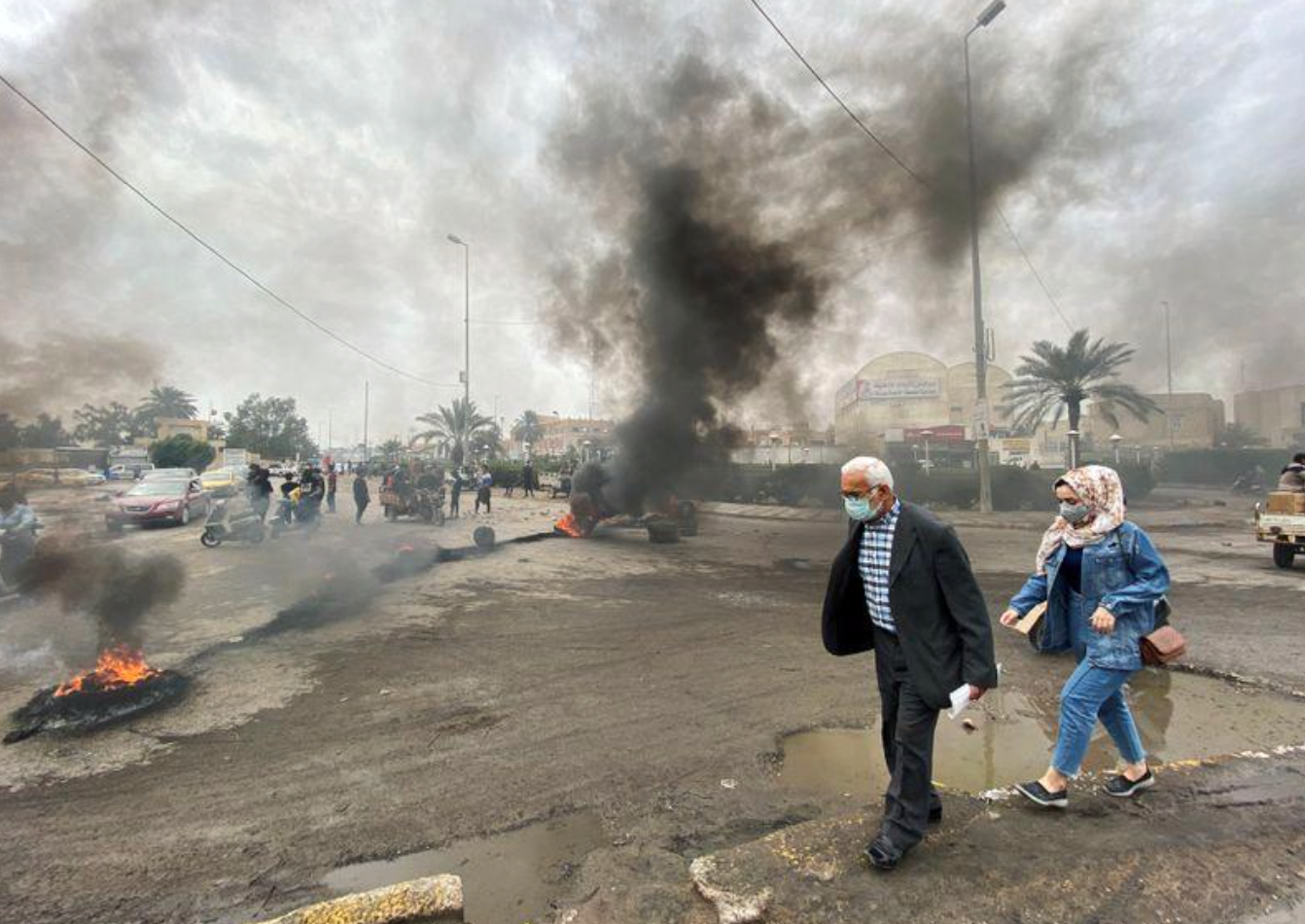
BAGHDAD (Reuters) — An Iraqi family of four who returned from a visit to Iran tested positive for the coronavirus, the first Iraqis known to have caught the disease, Iraq’s health ministry said on Tuesday, as the authorities rushed to prevent its spread from its neighbor.
The four cases in Kirkuk province brought Iraq’s total to five after it reported its first case on Monday, an Iranian theology student in the Shi’ite holy city of Najaf. Iraq is deeply concerned about its exposure to the Iranian outbreak, as it has deep cultural and religious ties with its neighbor and typically receives millions of Iranian pilgrims each year.
The Iraqi government, which has already banned all travel from China and Iran, added Italy, Thailand, South Korea, Singapore and Japan to its travel ban list on Tuesday. Returning Iraqi citizens are exempt, as are diplomats.
Iraq’s neighbor Iran has reported 16 coronavirus deaths, the most outside China, and said on Monday it had 61 confirmed cases and 900 other suspected cased. The semi-official Mehr news agency said 320 people have been hospitalized in Iran.
International experts worry that official numbers could underestimate the scale of Iran’s outbreak, because of a high number of cases reported among people traveling from Iran.
The four new cases in Iraq were placed in quarantine, the health ministry said.
Schools and universities were suspended for 10 days in Najaf, and citizens urged to avoid traveling there. Public gatherings in Najaf were banned until further notice and the ministry advised that they not be held throughout Iraq.
CENTER OF LEARNING
Fears of a coronavirus pandemic have grown sharply this week after sharp rises in new cases in Iran, Italy and South Korea. The virus has infected more than 80,000 people and killed more than 2,660 in China, where it originated late last year.
Najaf attracts millions of Shi’ite pilgrims each year. It is a global center of learning for Shi’ite Islam and home to the world’s biggest cemetery, where Shi’ites from around the world, especially Iran and Iraq, are sent to be buried.
Fears over the spread of the virus come as Iraq faces a domestic crisis with nearly 500 people killed since Oct. 1 in mass anti-government demonstrations.
Populist Shia cleric Moqtada al-Sadr suspended a call for his followers to hold a “million-man” protest, saying he had decide to forbid the events “for your health and life, for they are more important to me than anything else”.
It was not immediately clear how the government’s call on citizens to avoid public gatherings would affect the strength of anti-government protests, and the response of security forces.
Iraq has also shut off its border crossing with Kuwait at the latter’s request and Kuwait suspended flights to and from Iraq after it recorded three cases of the virus in people coming from Iran.
Reporting by Ahmed Aboulenein; Editing by Peter Graff
Image: Iraqi people wear protective face masks, following the outbreak of the new coronavirus, as they walk past burning tires ignited by Iraqi protesters to block the road during ongoing anti-government protests in Nassiriya, Iraq February 25, 2020. REUTERS/Ahmed Dhahi




